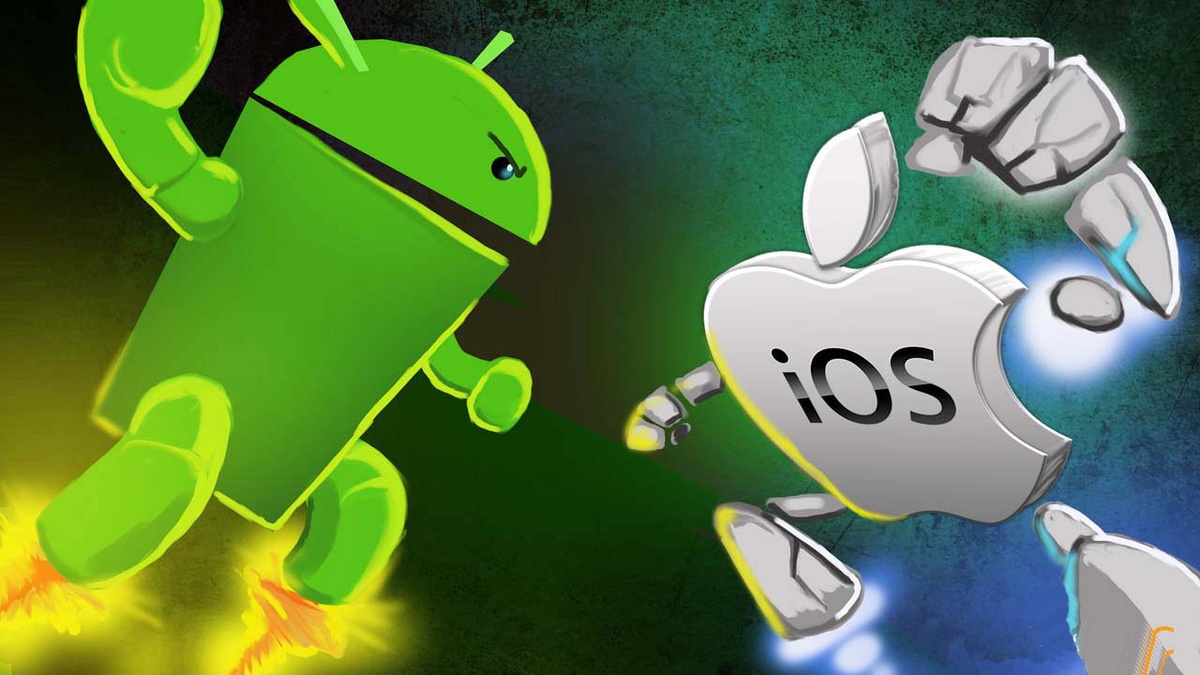Introduction
In this day and age of smartphones, choosing an operating system can be a difficult decision. With so many different brands, models, and features available, how can one truly determine which OS best suits their needs? Android and iOS are two of the most popular operating systems on the market today. Each has its own strengths and weaknesses; but which one is right for you as a smartphone user? In this article, we’ll take a look at Android vs. iOS to help you decide which one is better suited to your particular needs.
Android
The Android operating system has been developed by Google and is used on a variety of different smartphones. Android is known for its customization options, which allow users to change the look and feel of their devices. Additionally, Android offers a variety of apps and features that are not available on iOS devices.
One of the main benefits of using an Android device is the ability to customize the home screen. Users can add widgets, shortcuts, and live wallpapers to their home screen. This gives users a high level of control over the look and feel of their devices. Additionally, Android devices come with a variety of built-in features that are not available on iOS devices. For example, Android devices have a built-in file manager that allows users to easily access and manage files stored on their devices.
Another benefit of using an Android device is the wide selection of apps available. The Google Play Store offers a vast selection of apps, including many that are not available on the App Store. This gives users more choices when it comes to finding apps that meet their needs. Additionally, many Android apps are free or have lower prices than their iOS counterparts.
One downside of using an Android device is that it can be more difficult to find customer support if you run into problems with your phone. While there are many online resources available, such as forums and online manuals, it can still be tough to find answers to specific questions. Additionally, some manufacturers offer limited or no customer support for their Android
IOS
There are a few key differences between Android and iOS that may make one or the other a better choice for you. Here’s a look at some of the most important factors to consider when choosing between Android and iOS:
- Ecosystem: Android is an open platform with many different manufacturers offering devices, while iOS is only available on Apple devices. This can give Android a wider range of hardware choices and prices, but also fragmentation due to the various software versions running on different devices. iOS has tighter integration between hardware and software, but less flexibility.
- User interface: Android’s user interface is more customizable than iOS, giving you more control over how your device looks and feels. However, this customization can also lead to a cluttered interface if you download a lot of apps and widgets. iOS has a cleaner, more consistent interface across all devices, but it can feel limited compared to Android.
- Apps: Both Android and iOS have a large selection of apps available, but Android typically has more free apps than paid apps, while the reverse is true for iOS. However, because Android is open source, there are also many more pirated apps available for it as well.
- Updates: One advantage of having fewer manufacturers producing Android devices is that updates can roll out faster to all users. With so many different companies releasing new versions of Android at different times, updates can take longer to reach all users on the platform. On the other hand,
Which is better for today's smartphone users?
There are a few key factors to consider when deciding which smartphone operating system is right for you. Both Android and iOS have their pros and cons, so it’s important to evaluate what’s important to you before making a decision. Here are a few things to keep in mind:
-Ecosystem: One of the big considerations when choosing between Android and iOS is whether or not you’re invested in either ecosystem. If you have an iPhone, you’ll likely want to stay within the iOS ecosystem because it’s more seamless. The same can be said for Android – if you have an Android phone, you’ll probably want to stick with Android because of how integrated the experience is. But if you don’t have a strong preference either way, this may not be as big of a factor for you.
-App selection: Another thing to keep in mind is the app selection. iOS has a more curated app store, so there’s generally less junk on there. However, Android has a wider selection of apps overall. So if there’s a specific app that you want or need, chances are it’s available on Android but may not be on iOS.
-Price: Price is always a consideration when purchasing any type of technology. In general, iPhones are going to be more expensive than Androids. But there are definitely exceptions to this – especially when it comes to flagship models
Conclusion
Android and iOS are both excellent operating systems for today's smartphone users. Each of them has its own advantages: Android is more customizable, while iOS is more intuitive to use. Ultimately, the decision boils down to which platform better meets your needs—whether it be app availability, security features, or other factors. No matter which one you choose, you can rest assured that either will provide a great experience in using your smartphone.


Comments (1)